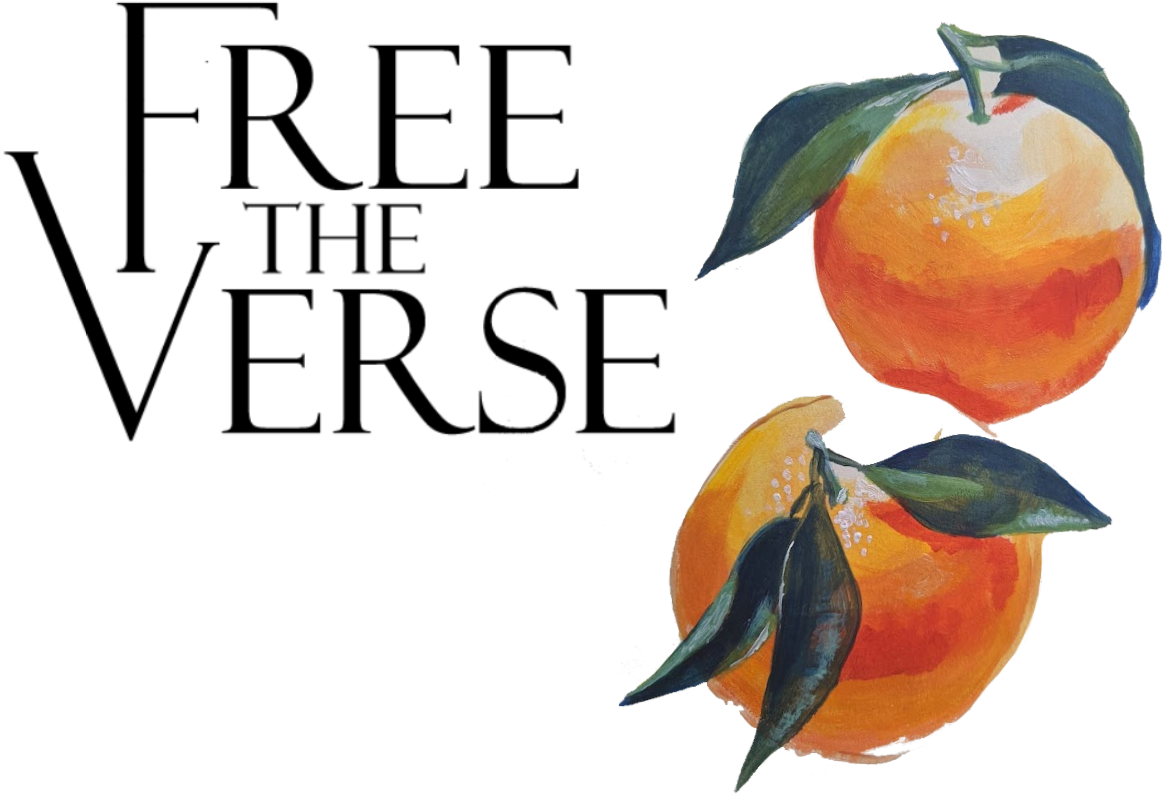Samuel Glyn on ‘Birds and Curtains Both’
Samuel Glyn is a 20 year old poet from London, currently residing in Norwich. When asked about his influences, he responded “Influences?” and “Get out of my house!”, and has not since contacted us to elaborate. His work can be found on Instagram @samglynpoetry.
What was the last thing that made you laugh?
The film “Barb and Star go to Vista del Mar”. That or my friend Dara. That, or the Football Book Club podcast covering the Michael Owen autobiography. That, or my increasingly tenuous grasp of time as a linear concept.
Where did your poetry journey begin?
Genuinely? When I rewrote the song “Lord of the Dance” to be about the Godhead’s enduring love of coconuts at the age of eight. “I cracked coconuts when the world was begun, I cracked for the moon and the stars and the sun...”. To be brutally honest, the main artistic changes I made involved the occasional exchange of verbs for the word “cracked” without any care for narratively or thematically coherence.
What is a core theme of ‘Birds and Curtains Both’, and what called you to write about it?
Appropriately, I was directly inspired by the rather striking curtains I had in my last house, which I have since moved out of. It was a while ago now, but I’m fairly sure I was quarantining at the time. If I wasn't, then I would still say it’s essentially about loneliness and longing, two emotions that largely characterised my 2020 and 2021.
Tell us about the experience of writing this poem.
This poem was unusual for me in that it has not been particularly heavily edited. Usually, any first drafts I write are incomplete, to be generous, and incomprehensible, to be genuine. This poem, however, came from me very easily and smoothly, which I would say is more testament to the intensity of my feelings at the time than any preternatural talent I might possess. I enjoy re-reading this one most of all my poems because it gives me a level of comfort I usually cannot quite reach when reading my own material – there’s something quite warm and honest about it that I don’t think I could easily replicate.
I think a good poem, when finished, allows you to sit back and feel like a stone just dropped off your ribcage. It’s not the sort of pleasant feeling that can be easily described other than, I suppose, the unexpected recognition of your own authentic identity. Which is elusive, to say the least, but sweet when briefly encountered.
Where does poetry fit into your life?
A safe space, I suppose. There are a lot of ugly emotions people feel that they are taught to not feel, emotions like anger or bitterness or envy, emotions that have the ability to twist you into something nasty or pitiful. Poetry, then, is an outlet to turn these feelings into something constructive and even beautiful, a way to express negativity in a way that doesn’t hurt anybody and can even help. I’ve never set much store by the kind of self-aggrandising poetry that empowers without acknowledging flaws or difficulties – not to downplay uplifting poetry, which I love more than words can say, but to me art can only be worthwhile if we are vulnerable writing and reading it; if it reveals something precious within us that we would typically hide for fear of being judged.
What inspires you?
All sorts. My family, for one, who have been a source of startling goodness even with the encroaching bitterness I tend to encase the world in as I get older. People who are themselves when it would be easier to be someone else as well – they inspire me to be braver than I am. The tiny absurdities of people that make them so ridiculous, broken and beautiful, and the way that they can be light funny when all logic demands otherwise. My Football Manager 2022 save file.
Is there a poem you read over and over again?
There are several. “Do not go gentle into that good night” by Dylan Thomas, “Hope is the thing with feathers” by Emily Dickinson, “Aedh Wishes for the Cloths of Heaven” by W.B. Yeats, “Ozymandias” by Percy Shelley. It’s not a poem, but “Florence” by Loyle Carner is one of the most heartbreakingly beautiful pieces of writing I’ve encountered in the 21st century, threatened only by the same rapper’s song-duo “Dear Jean” and “Dear Ben”. If I had to pick a single favourite though – and this might be cheating because it’s technically a song, not a poem – it would be Leonard Cohen’s “Chelsea Hotel No. 2”.
Do you have a favourite poet?
Leonard Cohen, if we’re counting him. Dylan Thomas if not. I have a taste for the joyous and uplifting, as you can tell.
What advice would you give to someone new to poetry?
At all times, be honest. Honest with how you feel, what you think, why you think it. Be honest with how good you think you are too – if you think a poem doesn’t work, tinker with it until it does, but no poem will ever become fully formed unless you’re willing to destroy it first. Don’t be scared of vulnerability, but also remember that poetry is about construction – if your poem is nothing but vulnerable, then nothing has been created except a bank of trauma. And always listen, to other things, other people, other poets. I know that all of my poet friends have made me a better writer to a scale I’ll never be able to conceive, but inspiration can come from anywhere. You just have to let it in.
Why do you write poetry?
Because I’m in love.
You can read Samuel’s poem here.


